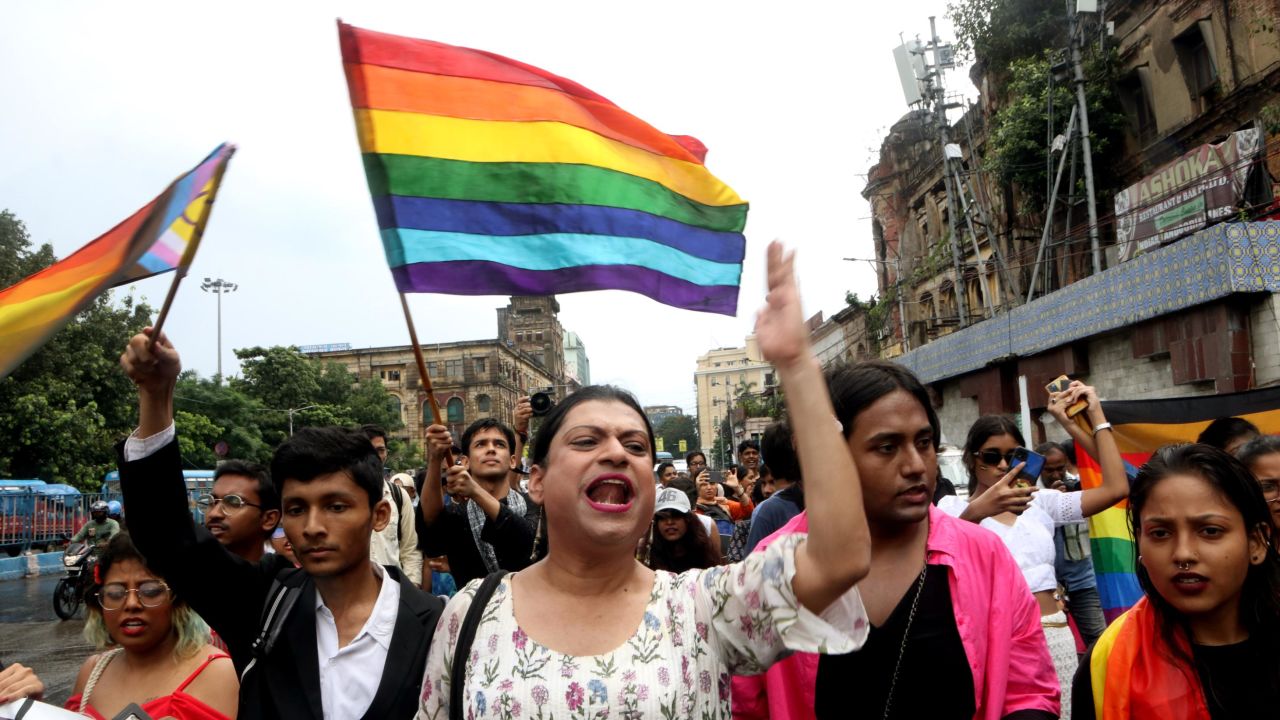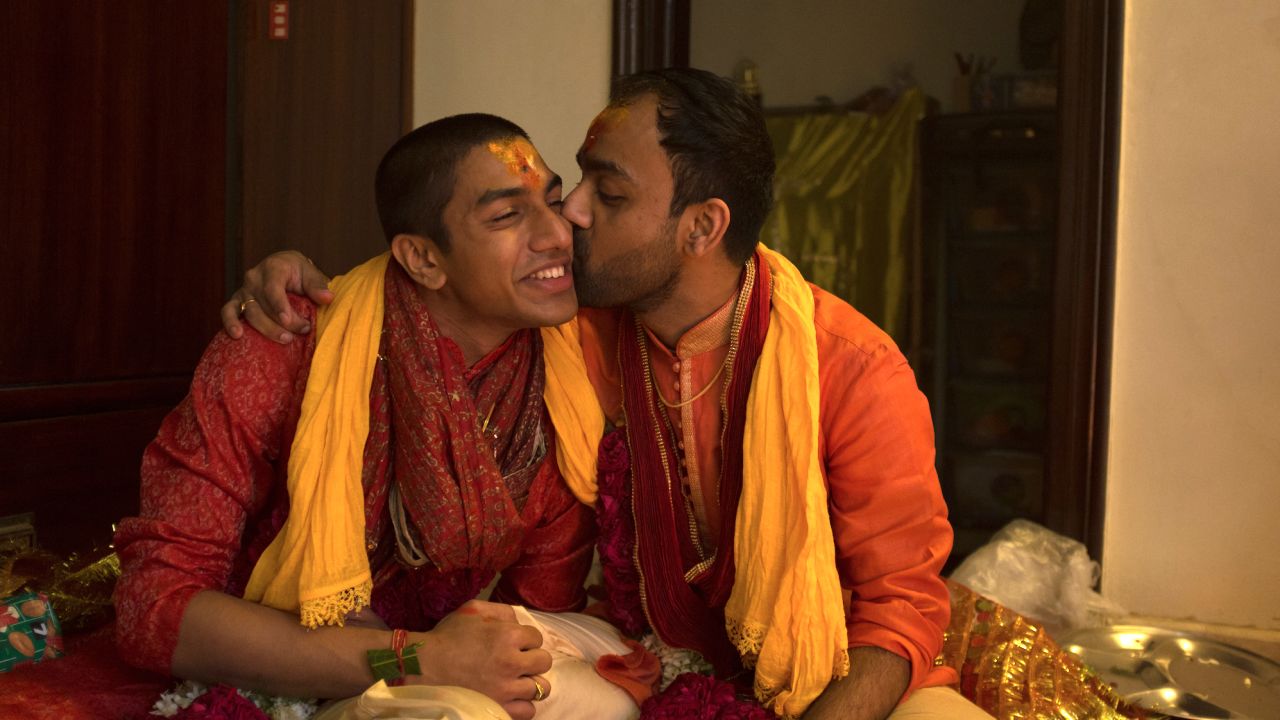CNN
—
It wasn’t love at first sight when Aditi Anand met Susan Dias at a book club in Mumbai.
“We didn’t get along with each other at all,” Anand, a filmmaker, said with a smile as she recalled the encounter. “We were always antagonistic toward each other’s views on the books we were reading.”
Weeks later, when the two women bumped into each other at a phone shop, Dias even ignored Anand.
“She tried so hard not to acknowledge me. But unfortunately, or rather fortunately for both of us, we found each other at the phone counter,” Anand said. “We said hi and exchanged numbers.”
More than a decade later, Anand and Dias have built a life together. They have co-founded their own companies, are raising a son, own a home and have adopted a dog.
But there’s one thing they have not been able to do in their home country: marry.
India, the world’s largest democracy and most populous country, does not recognize same-sex marriage, effectively barring millions of LGBTQ couples from accessing some of the legal benefits attached to matrimony in relation to issues like adoption, insurance and inheritance.
In Dias and Anand’s case, for instance, under the present law only one of them is recognized as their son’s legal parent, which affects issues like who can make medical decisions on his behalf.
However, things could be about to change.
In a landmark case being live-streamed to the public and watched by tens of thousands of people every day, India’s Supreme Court has since April been hearing submissions from activists challenging the law.
Advocates acting on behalf of 18 petitioners say it’s time for India to treat the country’s LGBTQ community as equal citizens under its constitution.
But they’re up against a tough opponent: the ruling government of the Bharatiya Janata Party (BJP), which argues that same-sex marriage is a “Western” concept without “any basis” in the constitution. It told the court in a recent submission such unions were an “urban” and “elitist” concept, and therefore not welcome in the country.
A ruling by the court is expected soon.
If the activists are successful, it could change the fabric of what is traditionally a deeply conservative country.
“I want my son to have two legitimate, lawful parents,” said Dias who, like Anand, is among the 18 petitioners. “And that’s why this petition is important to us.”

Indian attitudes to LGBTQ issues are complex.
Hindu mythology dating back centuries features men transforming into women and holy texts feature third gender characters. But same-sex intercourse was criminalized and marriage rights limited to heterosexual couples under a penal code introduced by India’s British former colonial leaders in 1860.
Since then, India’s LGBTQ community – likely one of the world’s largest given its population of 1.4 billion people – has faced widespread marginalization from society.
Both those elements of the colonial-era penal code remained in force even 70 years after India gained independence in 1947 (and years after they were abandoned by the former colonizer – with England and Wales legalizing same-sex intercourse in 1967 and same-sex marriage in 2013).
During nearly a decade in power, Indian leader Narendra Modi and his ruling BJP party have been keen to shake off India’s colonial baggage, renaming streets and cities and championing an India in charge of its own destiny. But Victorian laws governing same-sex marriage are one throwback to the colonial past his party has fought to retain.
In 2017, when the couple Vishwa and Vivek got married, homosexuality was still a crime – punishable by up to 10 years in prison. They held an intimate Hindu ceremony at Vishwa’s parents apartment just outside of New Delhi, inviting only some of their closest friends and family.
“We had to do it very quickly. It had to be brief,” said Vivek, who works for an NGO. “My family was not present.”

That same year, award-winning Indian filmmaker Karan Johar wrote about what it meant to be gay in India.
“Everybody knows what my sexual orientation is,” he wrote in his memoir “An Unsuitable Boy.” “I don’t need to scream it out…. I won’t, only because I live in a country where I could possibly be jailed for saying this.”
But there are signs attitudes are beginning to change.
In 2018, after a decade-long battle, the Supreme Court struck down the colonial-era law that criminalized same-sex intercourse – though it left intact the legislation limiting marriage to heterosexual couples.
In recent years same-sex relationships have been increasingly embraced both by Bollywood, the country’s highly influential Hindi-film industry, and major cities like Mumbai and Bengaluru, which celebrate pride month with parades and large-scale events.
Vishwa says these are big wins for the community and have encouraged efforts to change the law further, even in the face of strong government opposition. Even a ruling against the petitioners might have a silver lining, he said.
“It might not be a win. Most of us have made peace with it,” Vishwa said. “But we know that any positive statement made by the Supreme Court will benefit us in the future and we are very ready to continue fighting.”
Whatever the court decides, its ruling will affect millions of people in India for generations to come.
Advocates say a positive ruling will give legitimacy and more influence to the countless Indians who presently struggle to come to terms with their sexuality and face harassment on the streets, in schools and in the workplace.
Celebrity chef and LGBTQ activist Suvir Saran is among those critical of the government’s stance, saying it is sending a message that India doesn’t accept people the way they are.
In rural pockets of the country, where discrimination is widespread, the ramifications of coming out can be particularly dire, Saran says.
“If you’re coming from a place with no access to quality education, or just any of the basic amenities of life, you’re broken. You’re broken even before you get to your sexuality,” Saran said.
Anish Gawde, founder of Pink List India, an organization that tracks the LGBTQ views of Indian politicians, said many people without support have been driven from their homes and forced to live a life of seclusion.
“Marriage equality is in fact more important to these tens of thousands of queer people in India,” Gawde said. “They love and continue to love despite social stigma and oppression.”
Vivek hopes a positive ruling would legitimize his relationship with his husband in the eyes of the wider public.
“I want to be known as the partner of Vishwa in the eyes of the law,” he said. “Marriage is a social contract. It’s also a financial contract. The rights given to heterosexual couples are so significant for people like us to build a life together.”
Since petitioning the top court, Dias said she has realized that they are not doing this for themselves, but for the millions of people who don’t have the means to fight.
“It’s really become a collective action now. I’m doing this for those who cannot, as much as I’m doing it for myself,” she said.
Anand agreed, adding that what started off as a conversation in their home has morphed into a movement that has united India’s LGBTQ community.
“We are asking can we be equal?” she said.